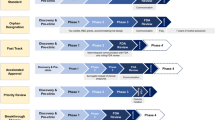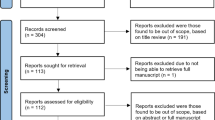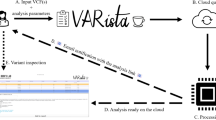Abstract
This article concerns the identification of associations between the incidence of adverse drug reactions and features apparent from whole genome scans of patients together with the subsequent implementation of an adaptive exclusion procedure within a drug development program. Our context is not a retrospective assessment of a large and complete database: instead we are concerned with identifying such a relationship during a drug development program and the consequences for the future conduct of that program. In particular, we seek methods for identifying changes to the exclusion criteria that will prevent future patients at high risk of an adverse reaction from continuing to be recruited. We discuss the levels of evidence needed to amend an existing recruitment policy, how this can be done, and how to evaluate and revise the reformulated recruitment policy as the trials continue. The approach will be illustrated using clinical trial data to demonstrate its potential for making an immediate reduction in the incidence of adverse drug reactions.
Similar content being viewed by others
References
Mallal S, Phillips E, Carosi G, et al.; PREDICT-1 Study Team. HLA-B* 5701 screening for hypersensitivity to abacavir. N Engl J Med. 2008; 358:568–579.
Hughes S, Hughes A, Brothers C, Spreen W, Thorborn D; CNA106030 Study Team. PREDICT-1 (CNA106030): the first powered, prospective trial of pharmacogenetic screening to reduce drug adverse events. Pharm Stat. 2008;7: 121–129.
Kelly P. Stallard N, Zhou Y, Whitehead J, Bowman C. Sequential genome-wide association studies for monitoring adverse events in the clinical evaluation of new drugs. Stat Med. 2006;25: 3081–3092.
Whitehead J, Kelly P, Zhou Y, Stallard N, Thygesen H, Bowman C. Action following the discovery of a global association between the whole genome and adverse event risk in a clinical drug-development programme. Pharm Stat. 2009;8: 287–300.
Tibshirani R. Regression shrinkage and selection via the Lasso. J R Stat Sac B. 1996;58:267–288.
Genkin A, Lewis DD, Madigan D. Large-scale Bayesian logistic regression for text categorization. Technometrics. 2007;49:291–304.
Clayton D. SNPHAP: A program for estimating frequencies of large haplotypes of SNPs (Version 1.3). 2002. https://doi.org/www-gene.cimr.cam.ac.uk/clayton/software/snphap.txt.
Souverein OW. Defesche JC, Zwinderman AH, Kastelein JJ.Tanck MW. Influence of LDL-receptor mutation type on age at first cardiovascular event in patients with familial hyper-cholesterolaemia. Eur Heart J. 2007;28:299–304.
Roses AD, Pharmacogenetics in drug discovery and development; a translationsl perspective, Nat Rev Drug Discov. 2008;7:807–817.
UK Telegraph. Star Trek gadget checks suitability to medicines. February 16, 2009. https://doi.org/www.telegraph.co.uk/news/newstopics/howaboutthat/4641977/Star-Trek-gadgetchecks-suitability-to-medicines.html.
Author information
Authors and Affiliations
Corresponding author
Additional information
Ting-Li Su, Helene Thygesen. and John Whitehead have disclosed that, as members of the MPS Research Unit, they have received grantdresearch support from the pharmaceutical industry. During the period of this research, Clive Bowman was employed by GlaxoSmithKline.
Rights and permissions
About this article
Cite this article
Su, TL., Thygesen, H., Whitehead, J. et al. Determining an Adaptive Exclusion Procedure following Discovery of an Association between the Whole Genome and Adverse Drug Reactions. Ther Innov Regul Sci 44, 147–157 (2010). https://doi.org/10.1177/009286151004400206
Received:
Accepted:
Published:
Issue Date:
DOI: https://doi.org/10.1177/009286151004400206




